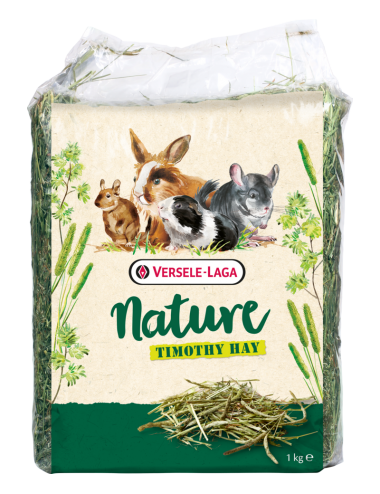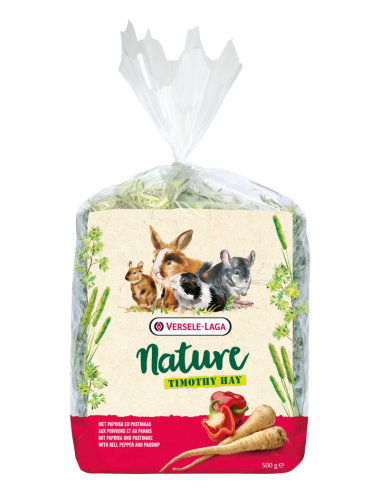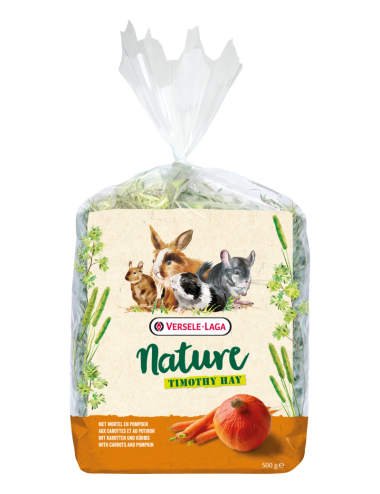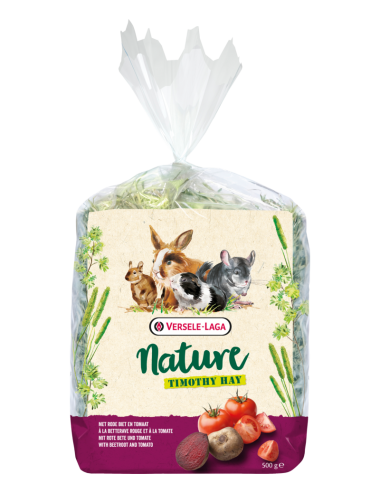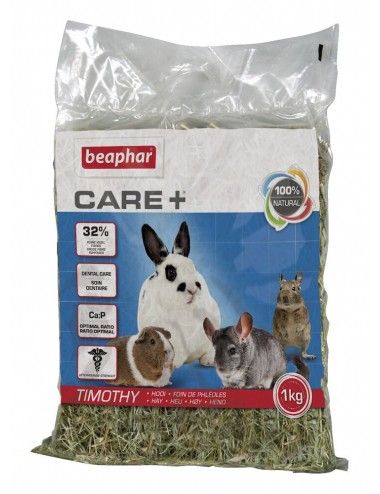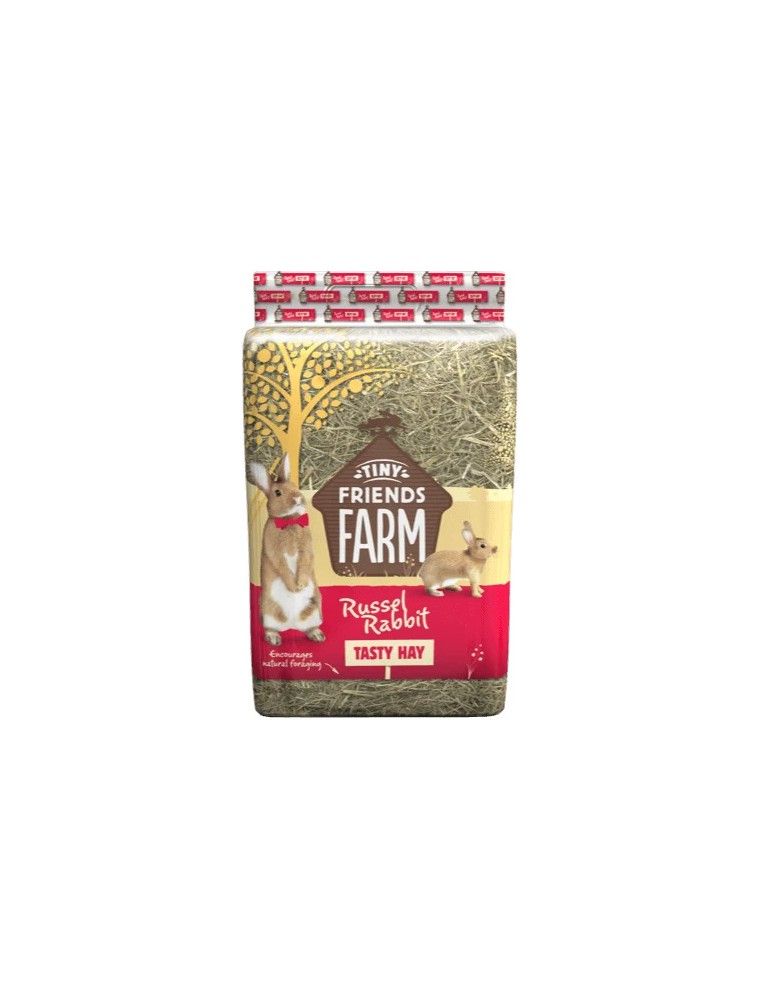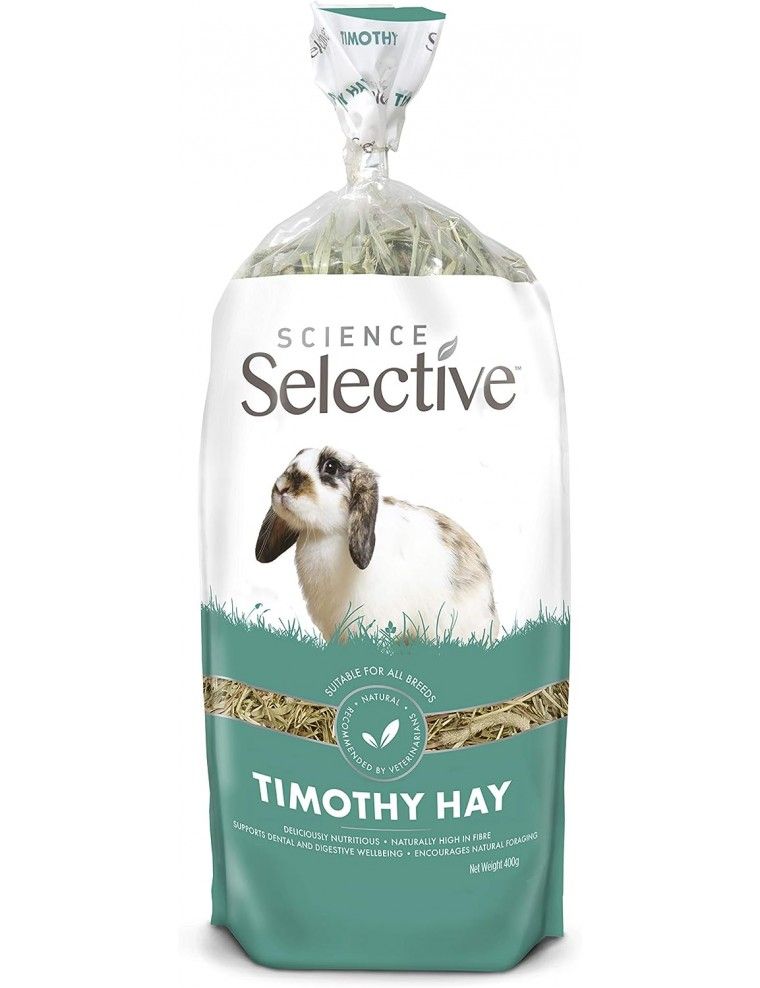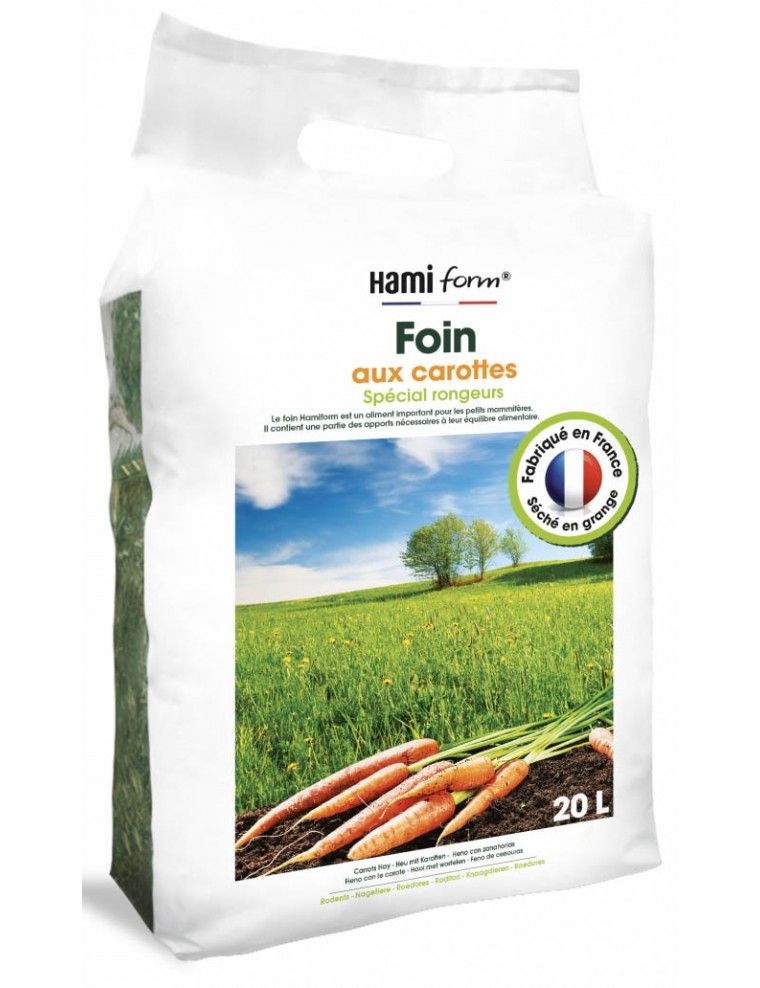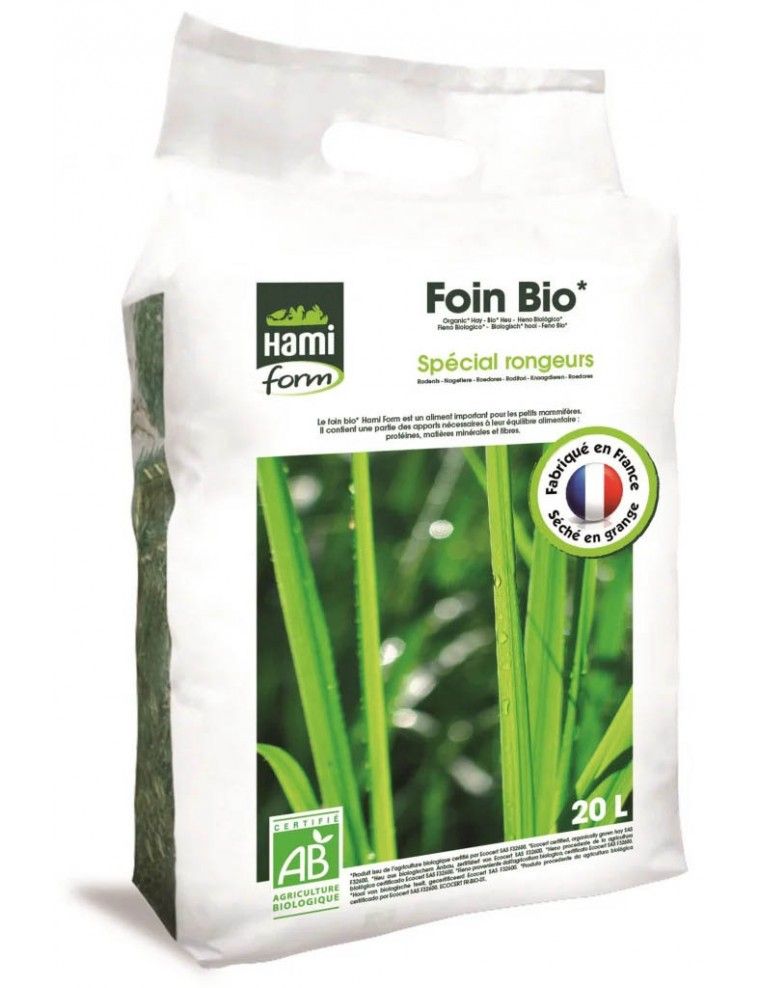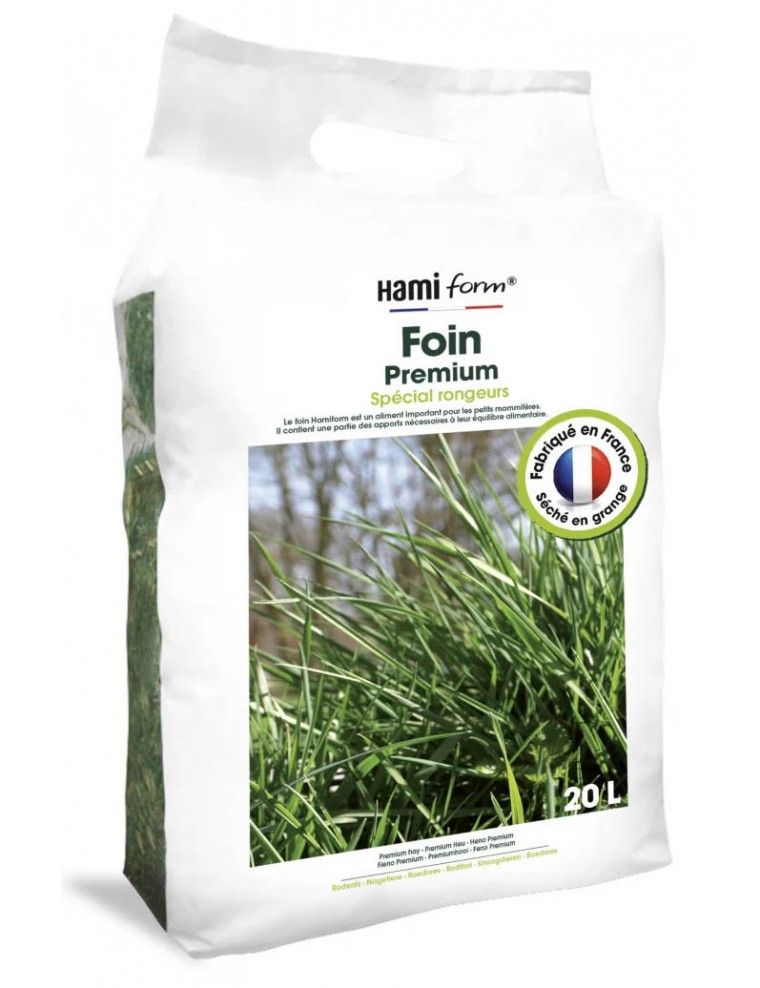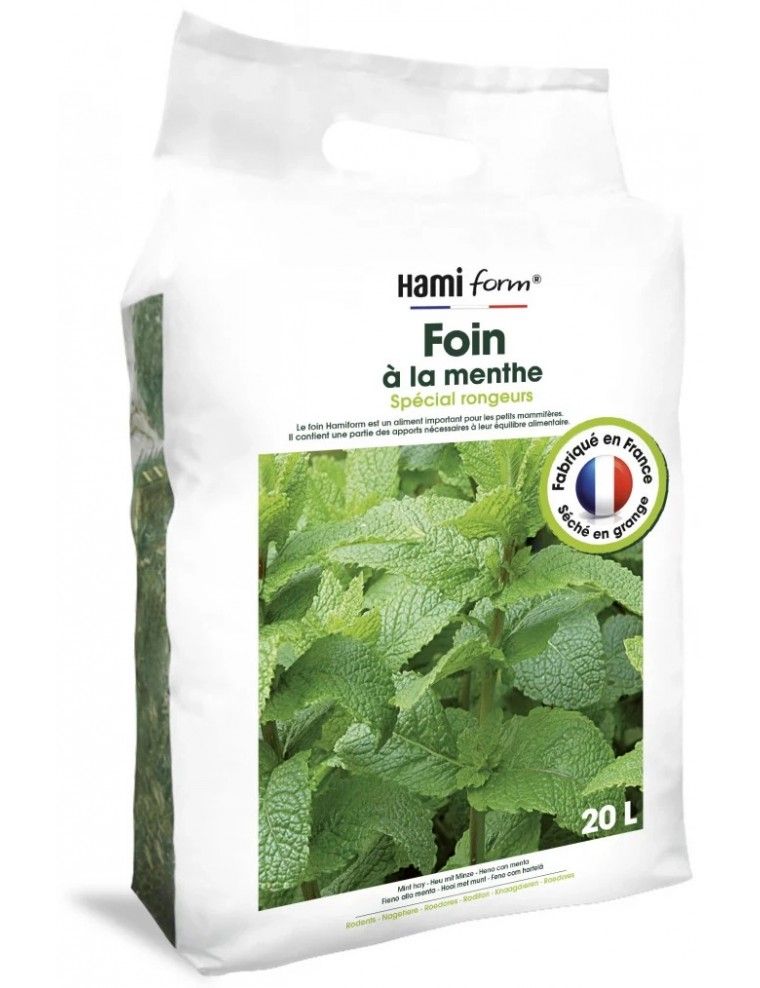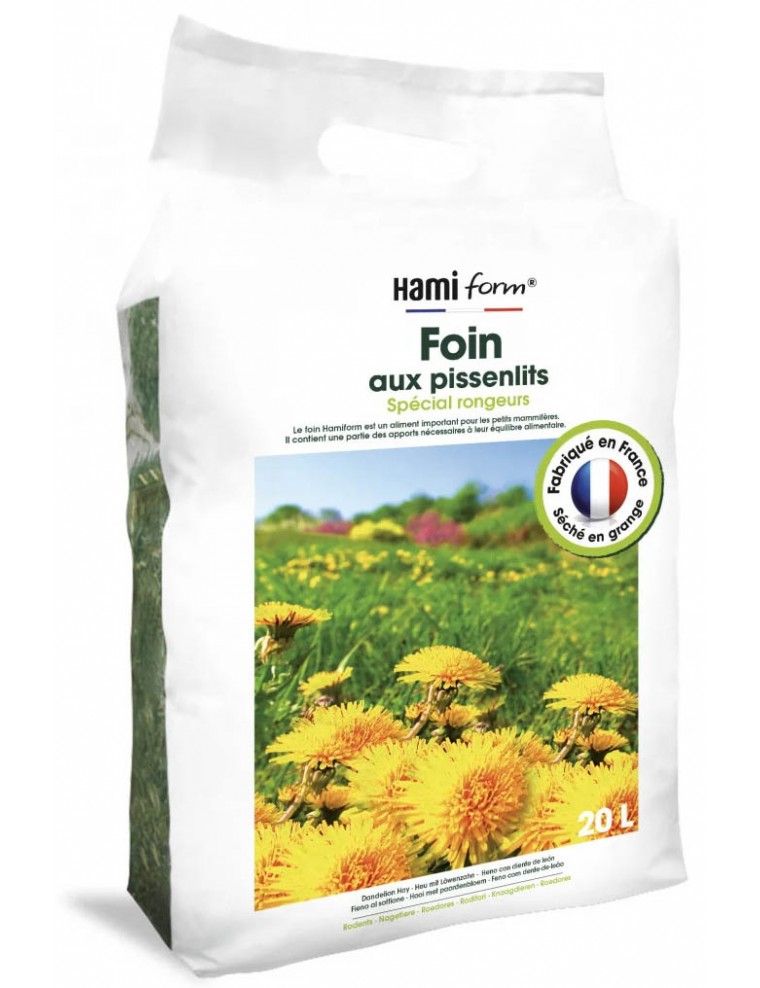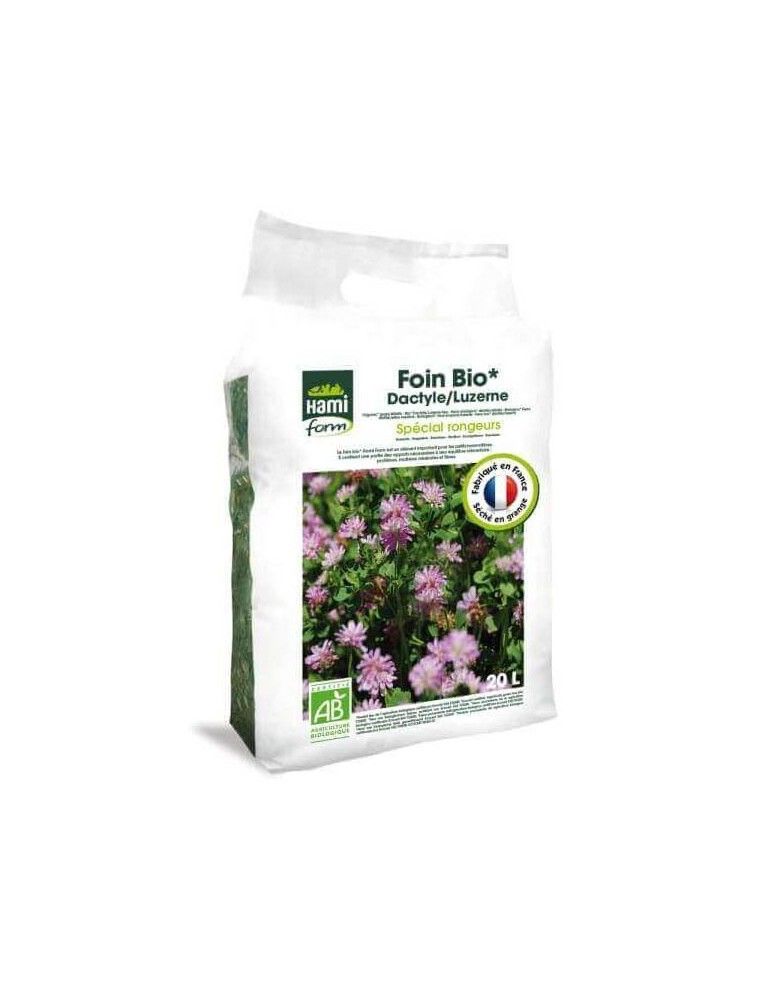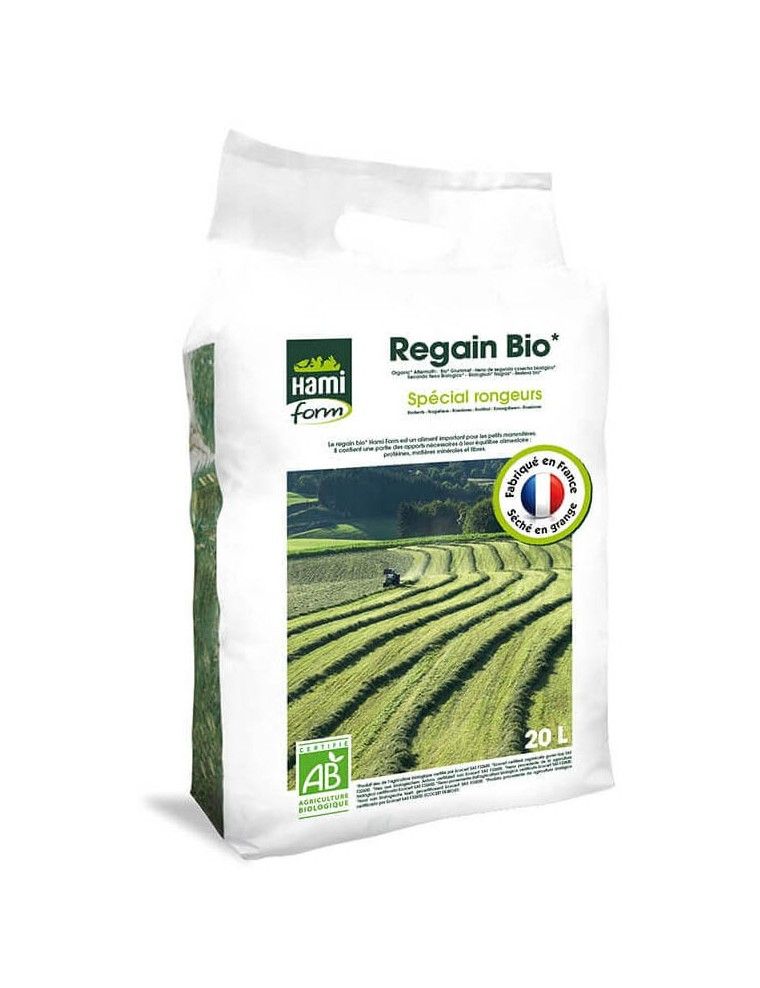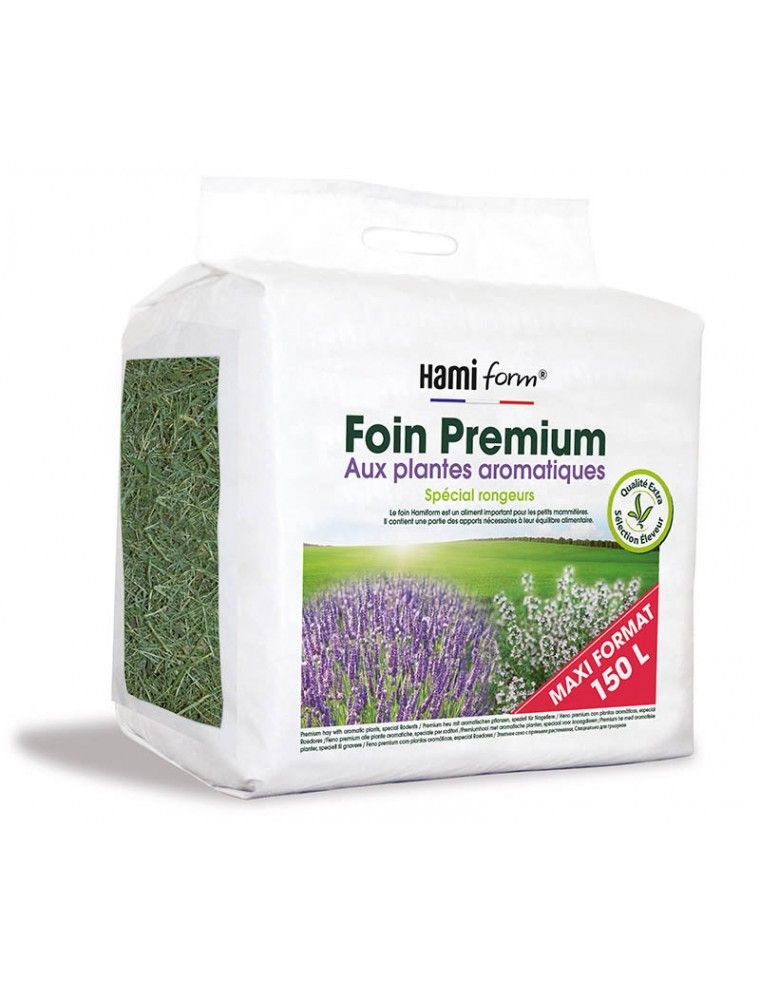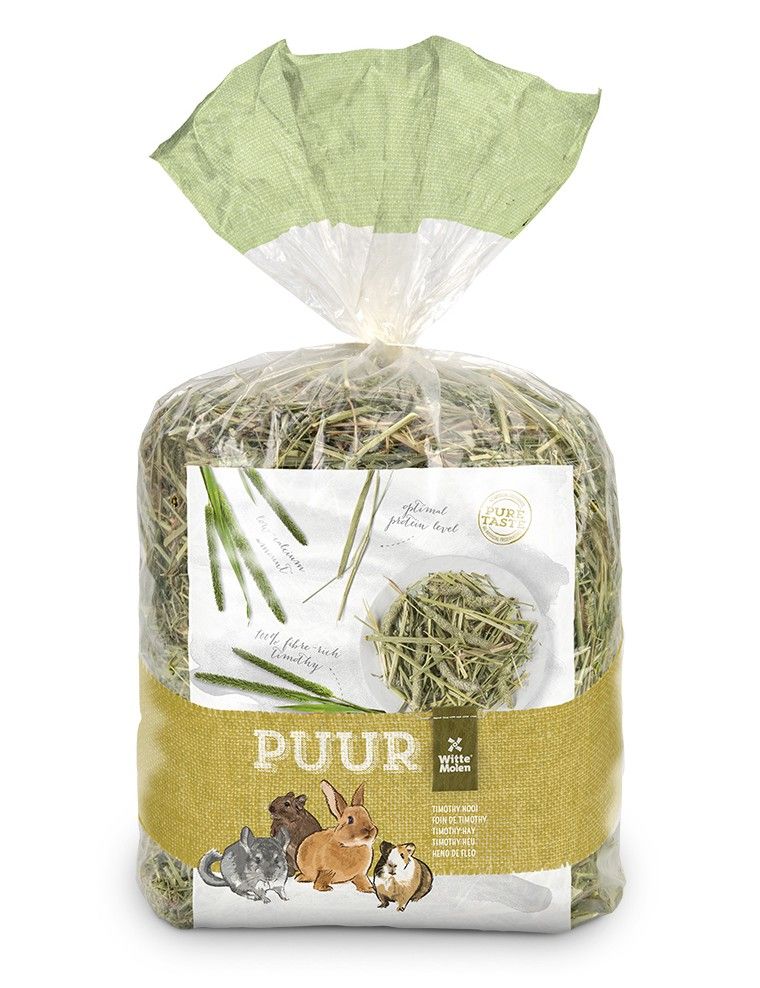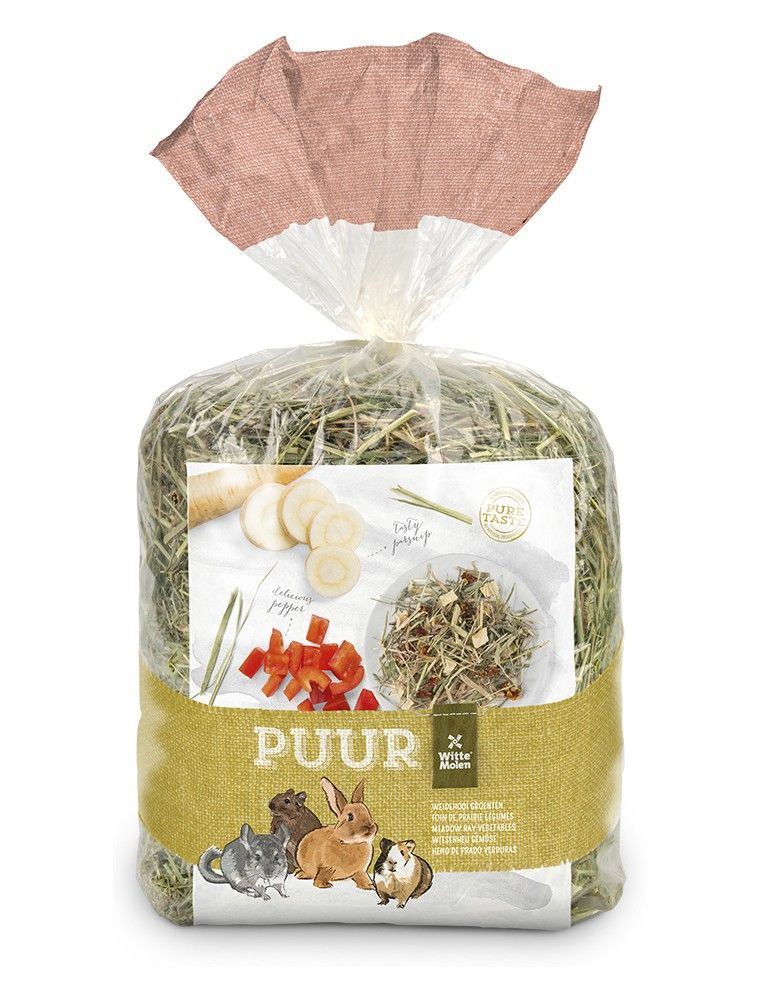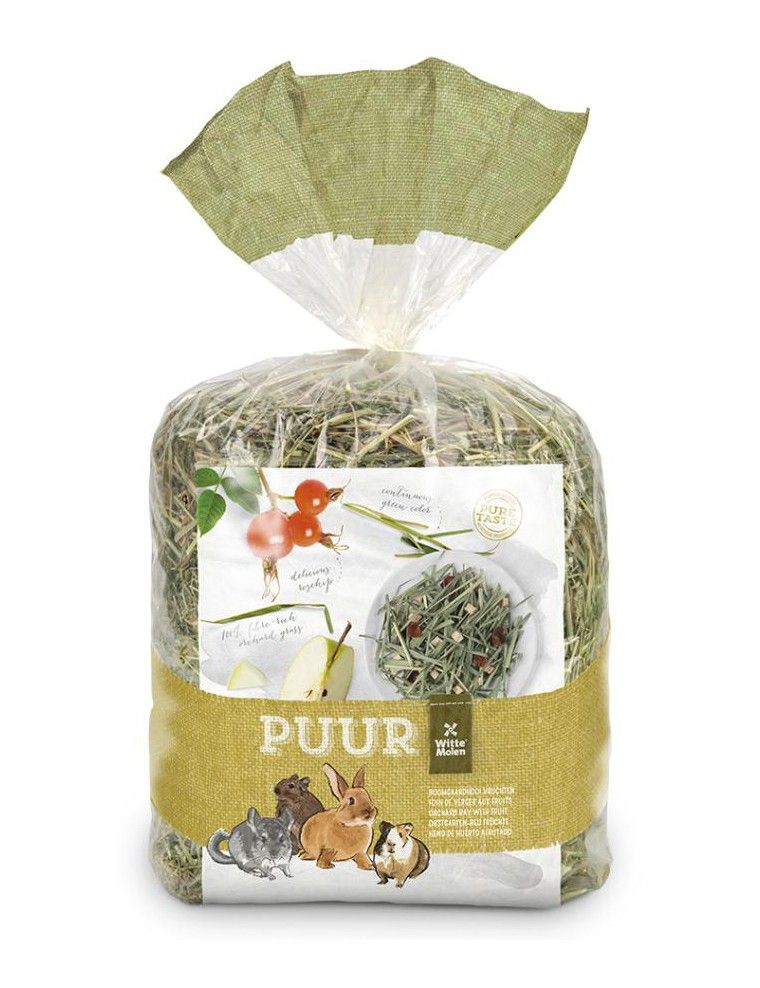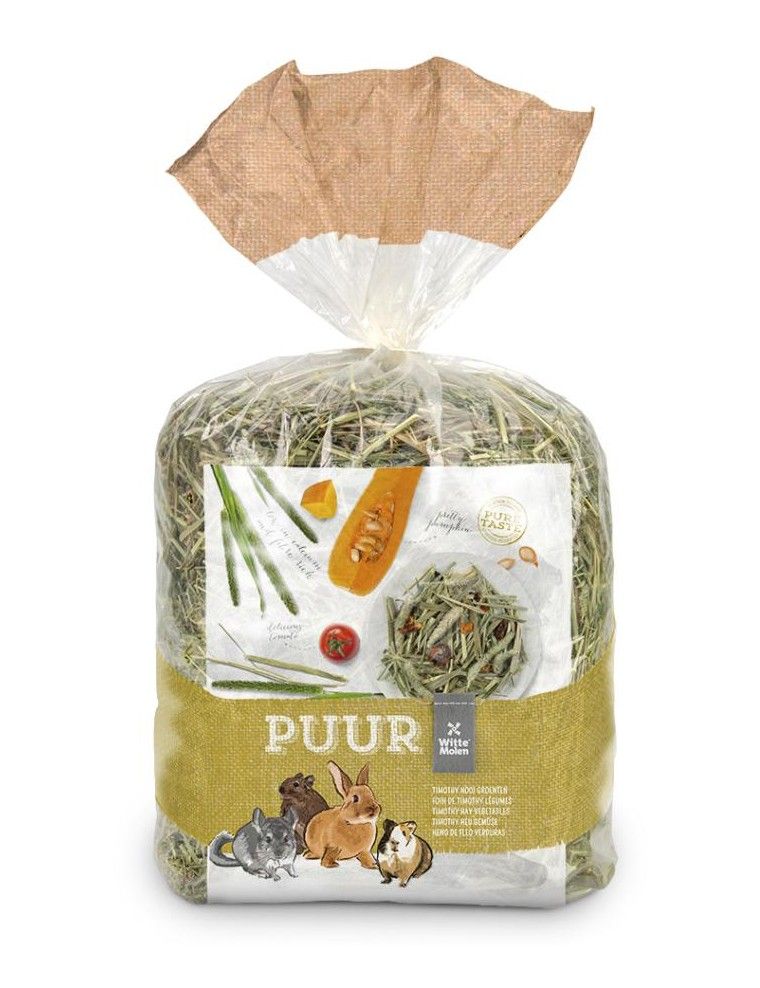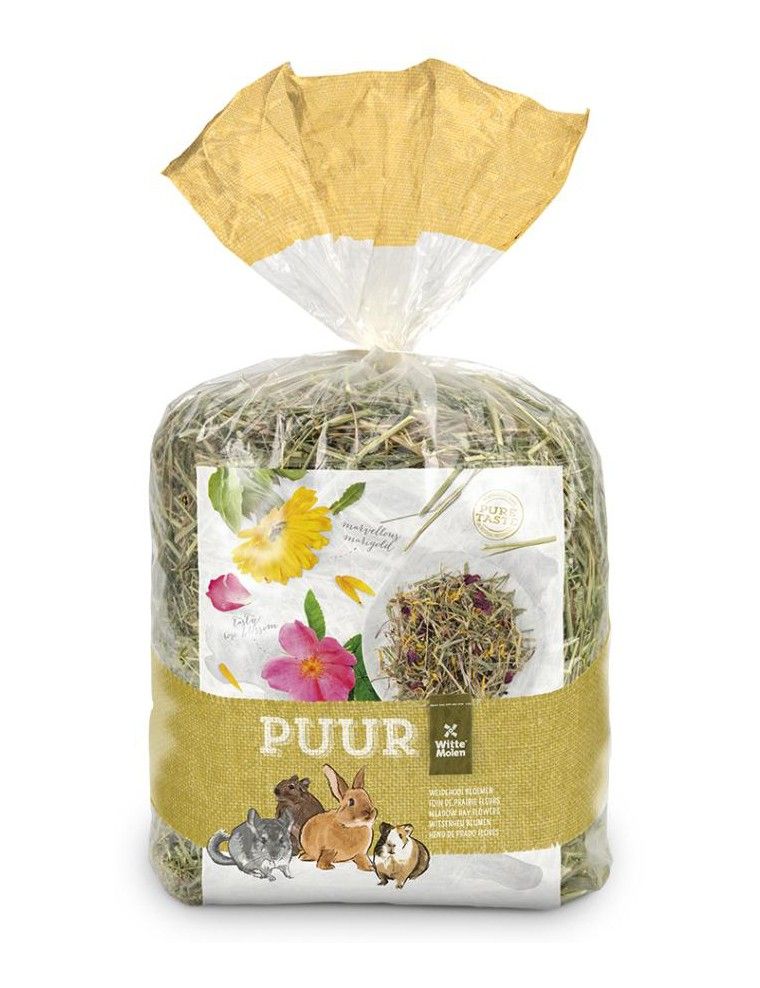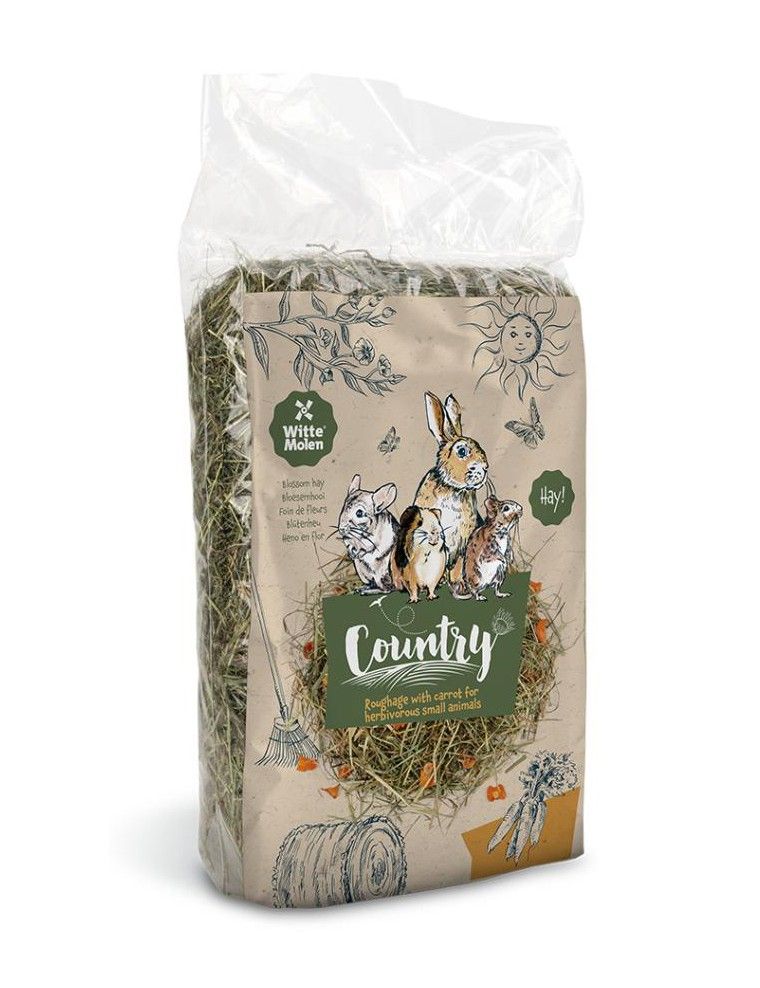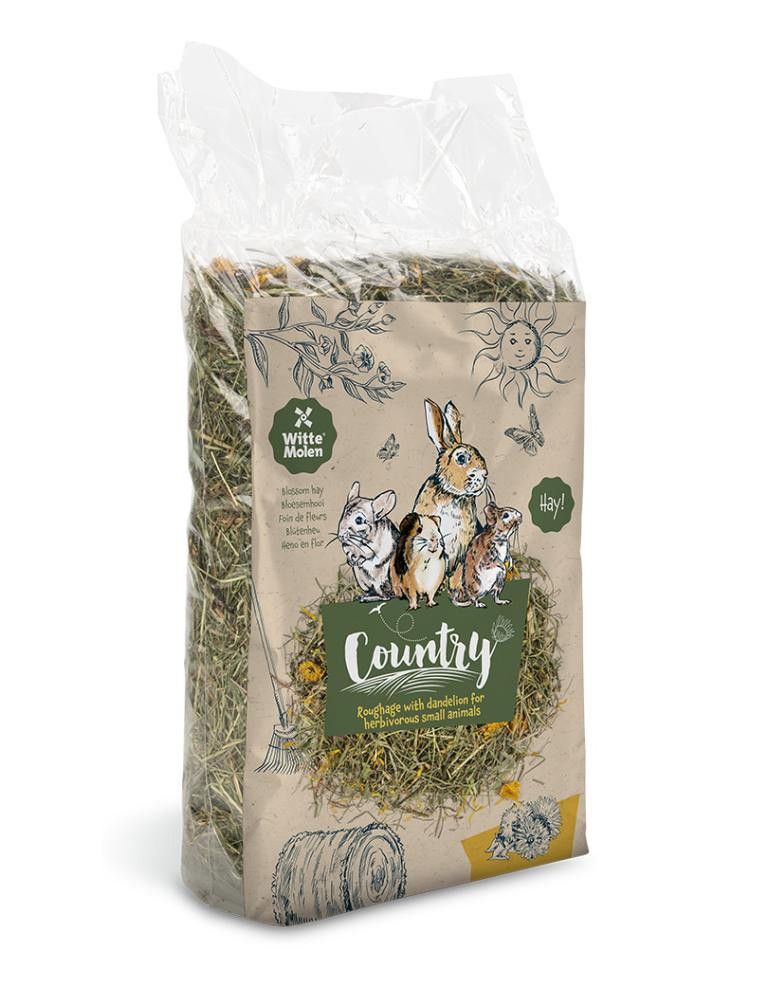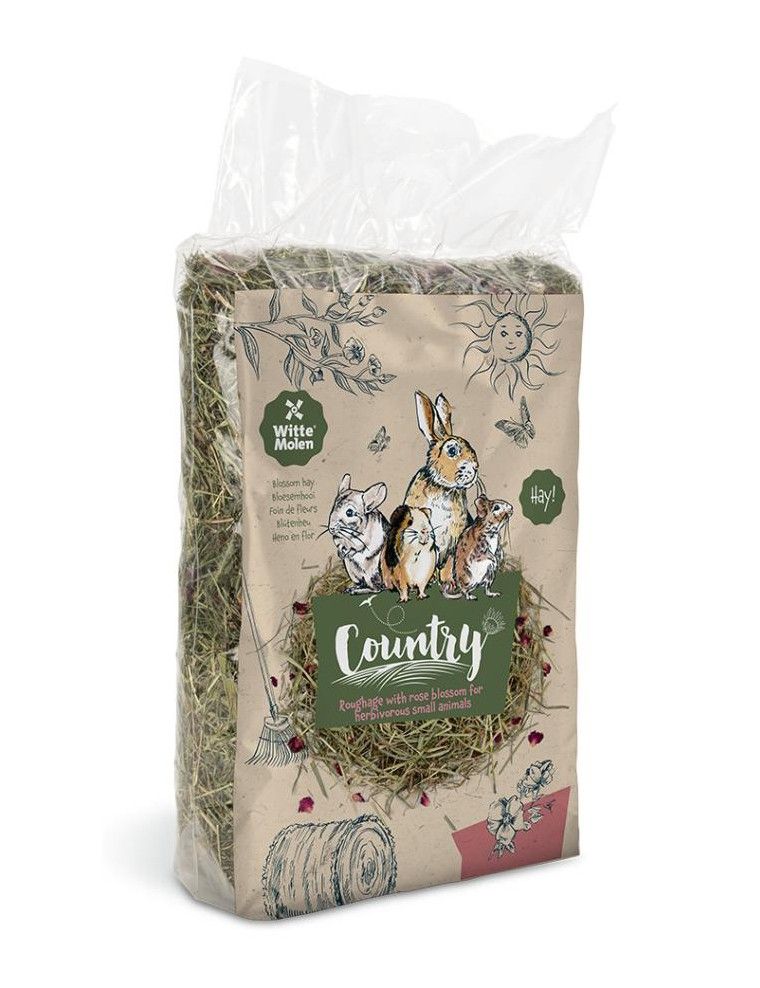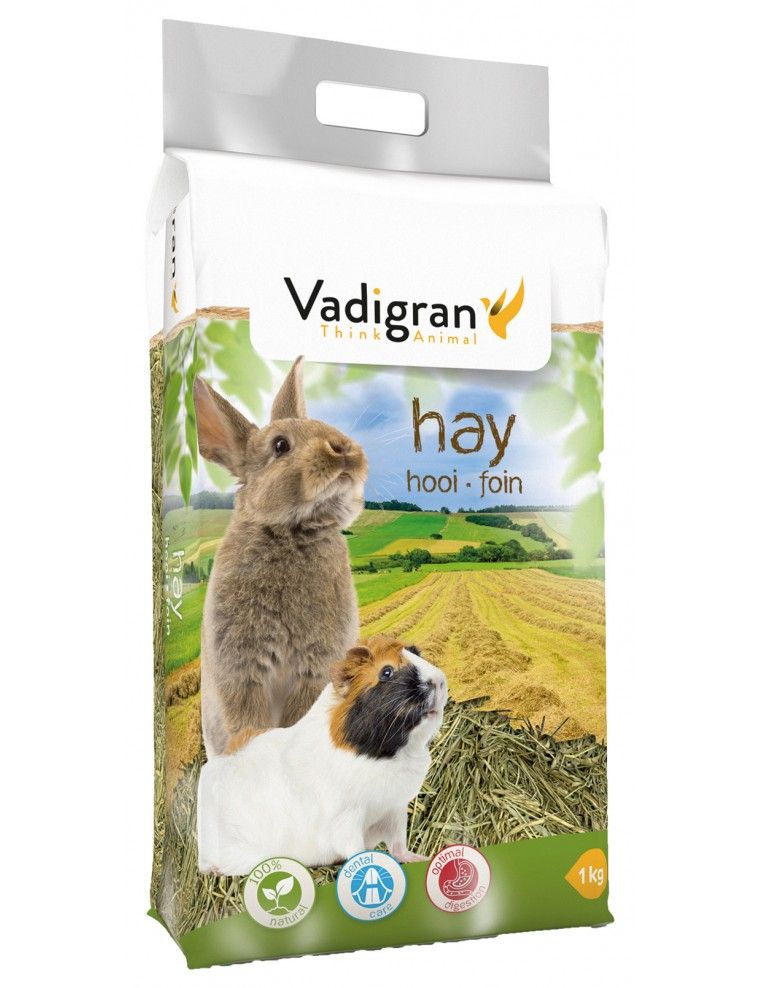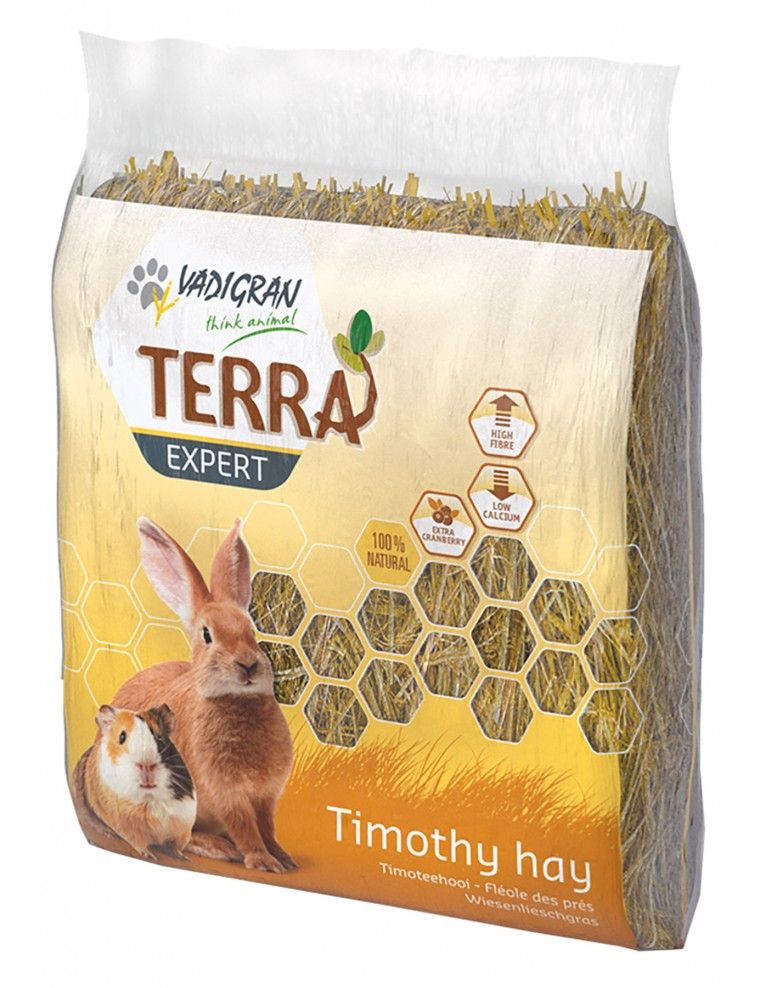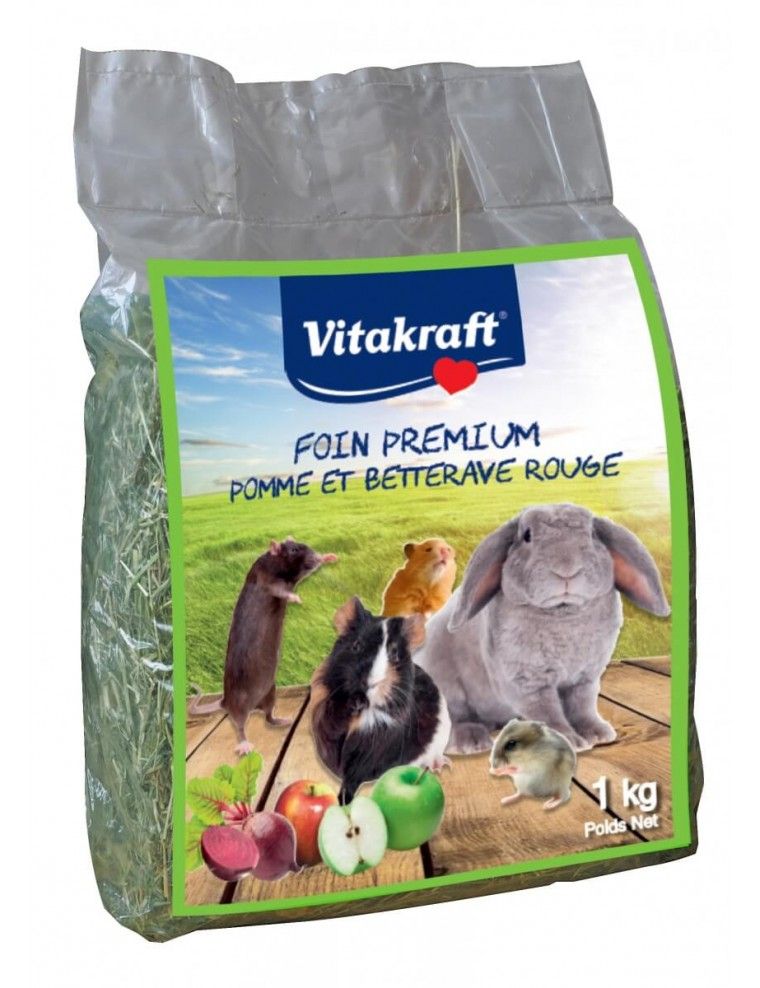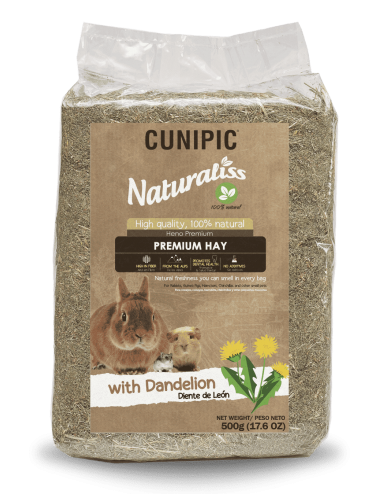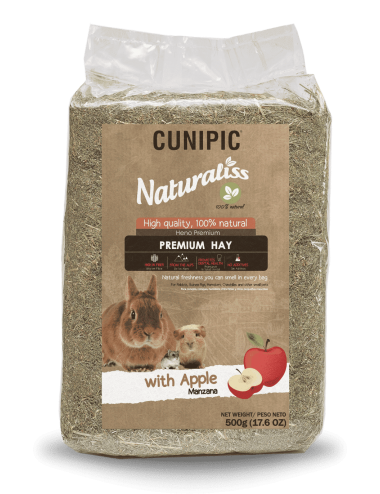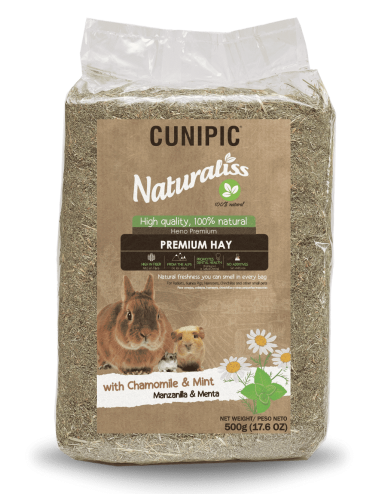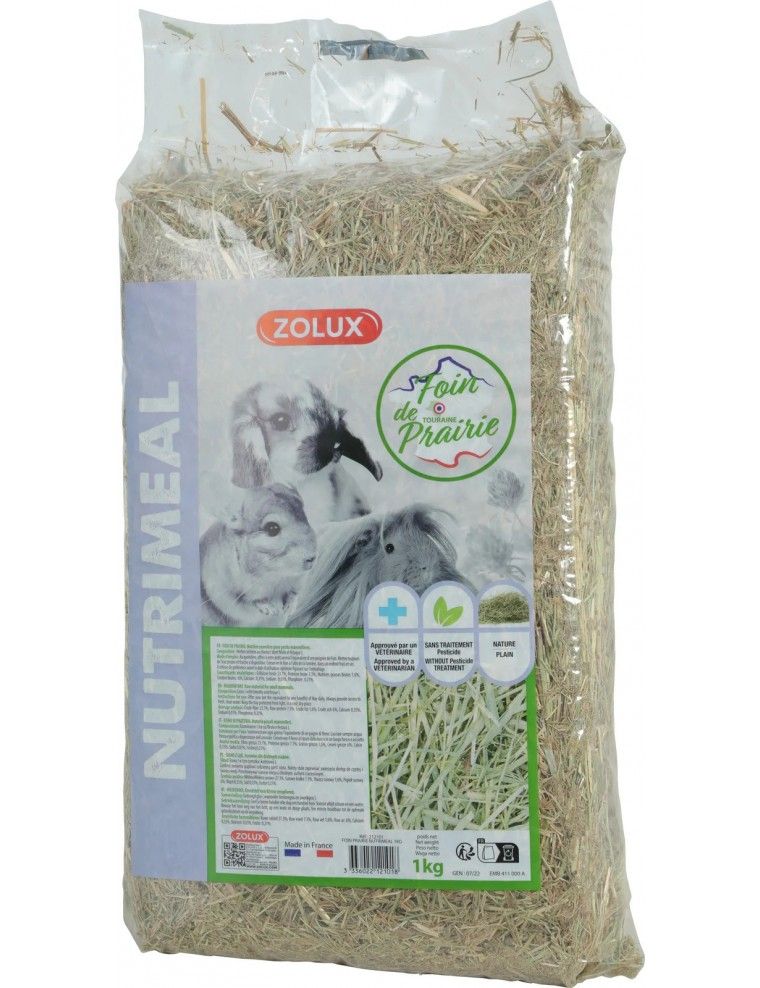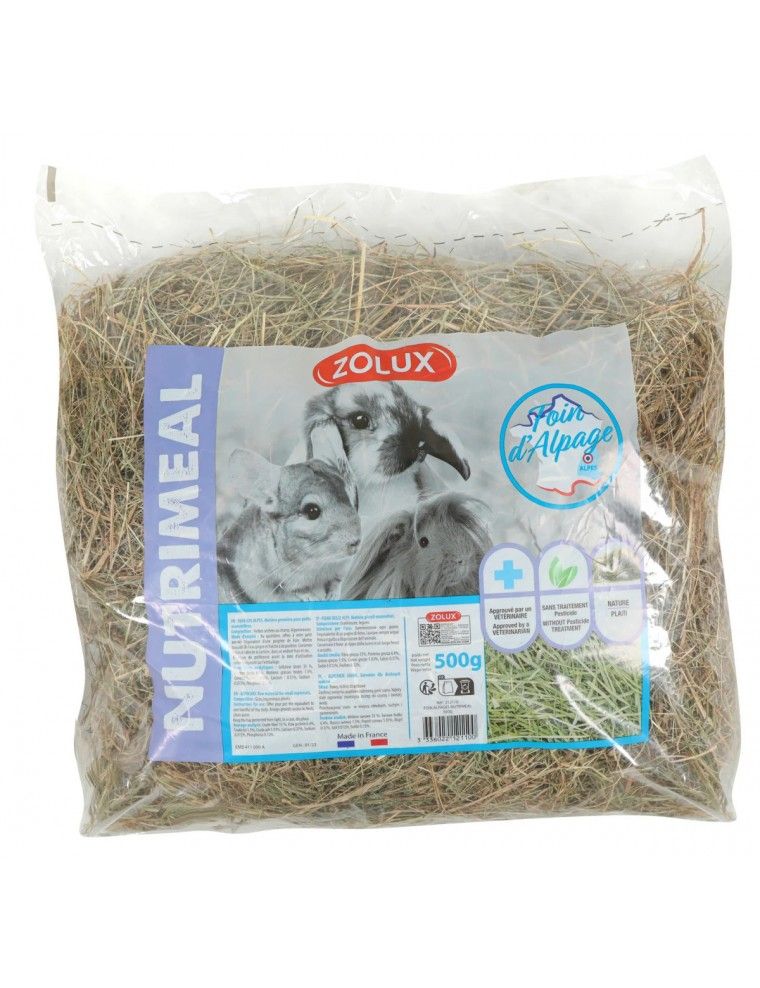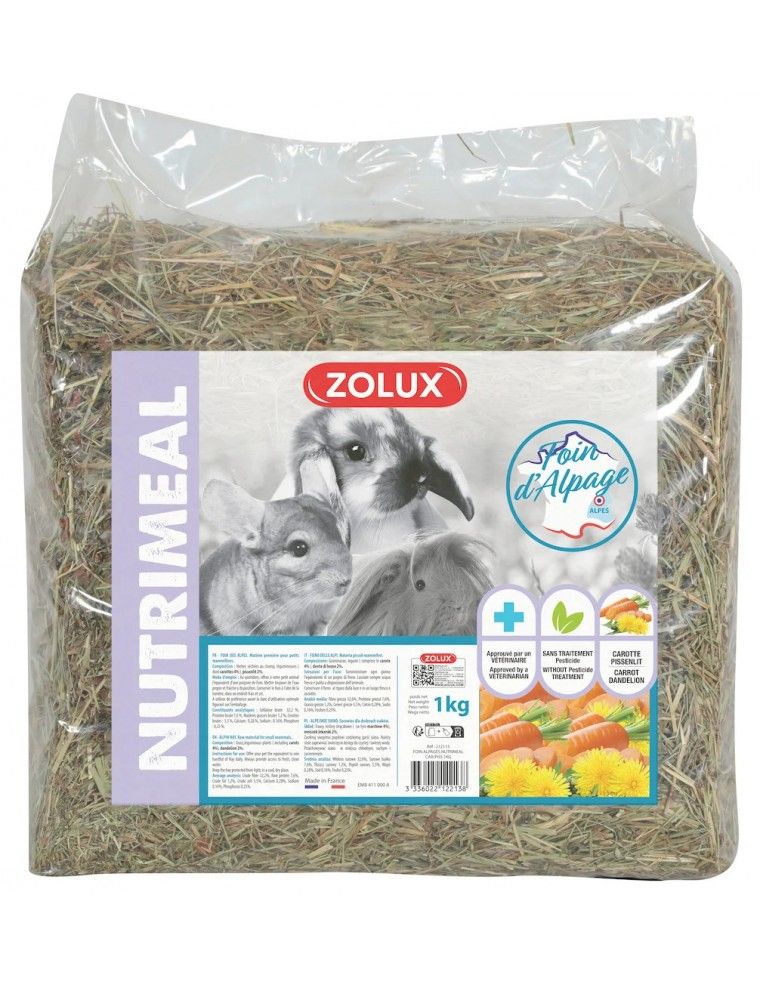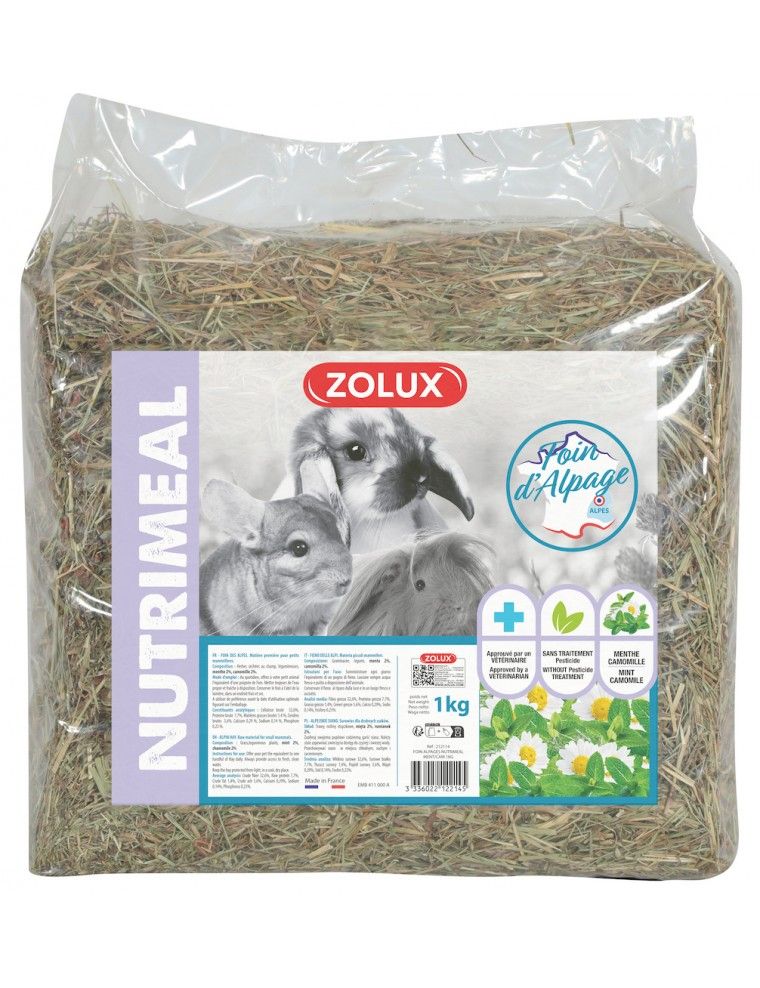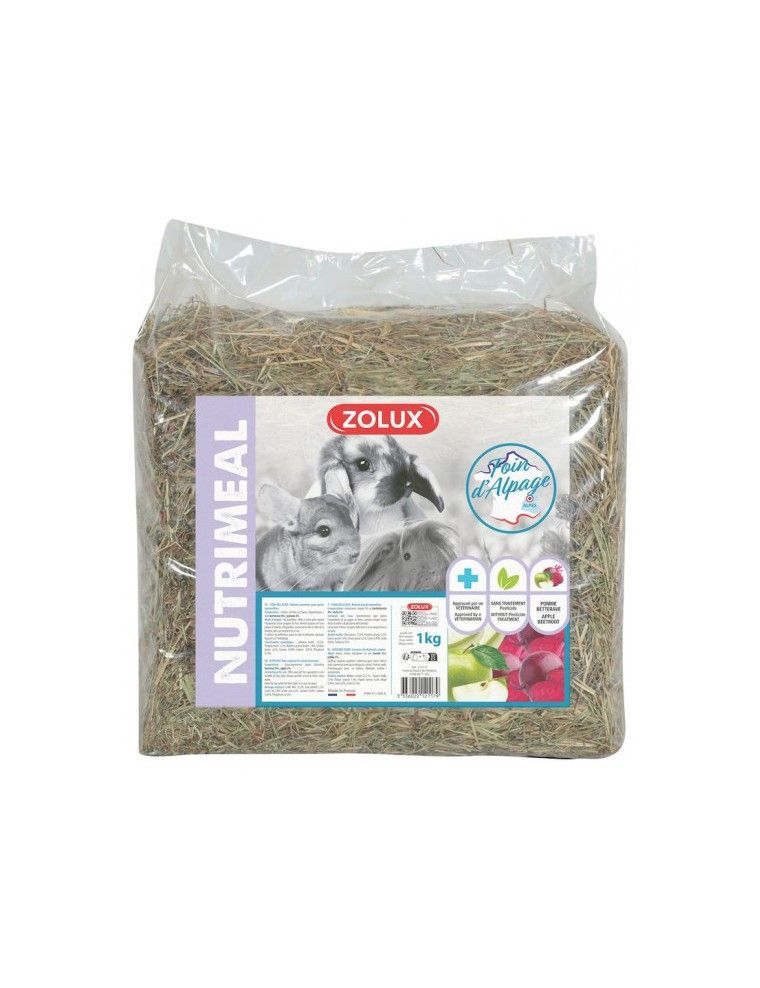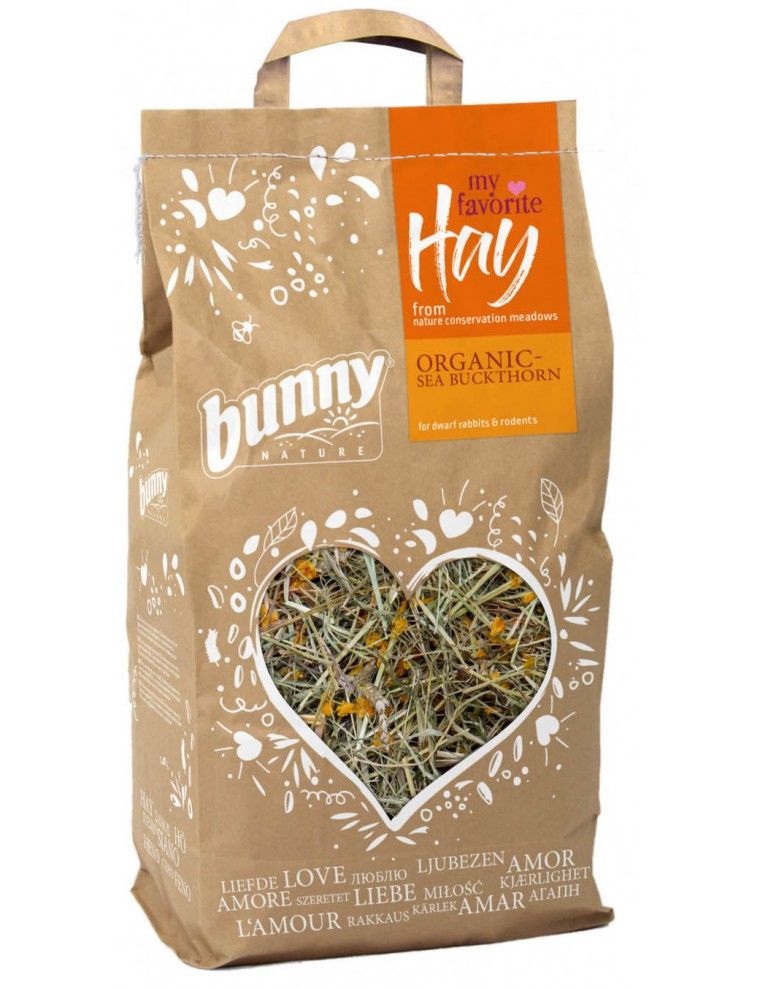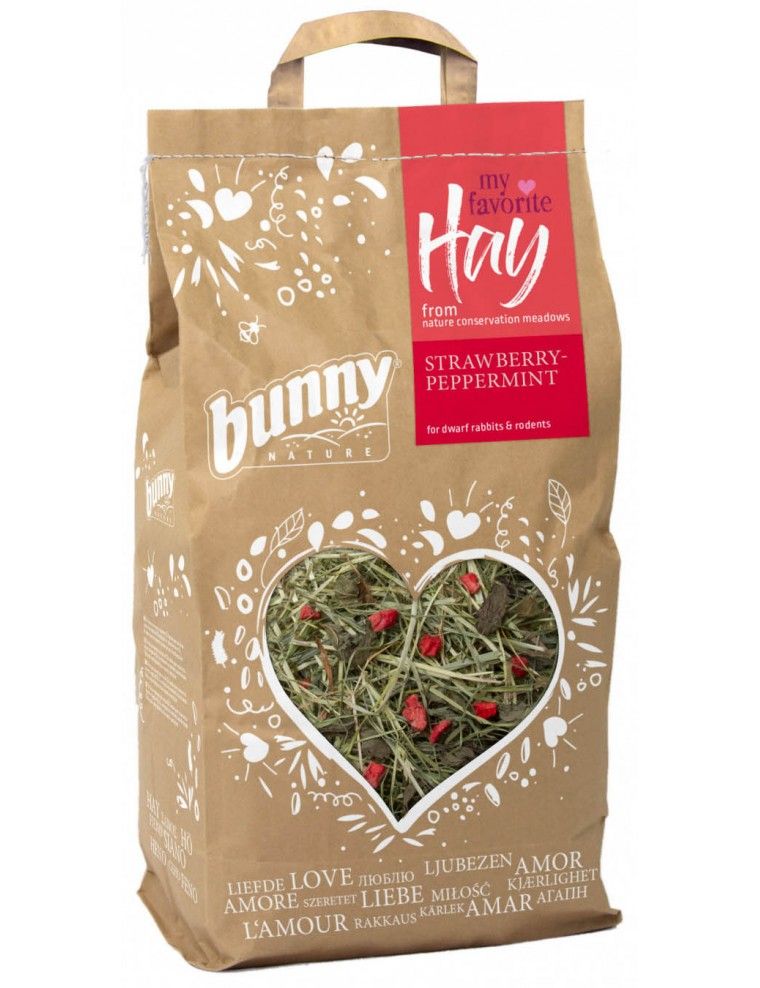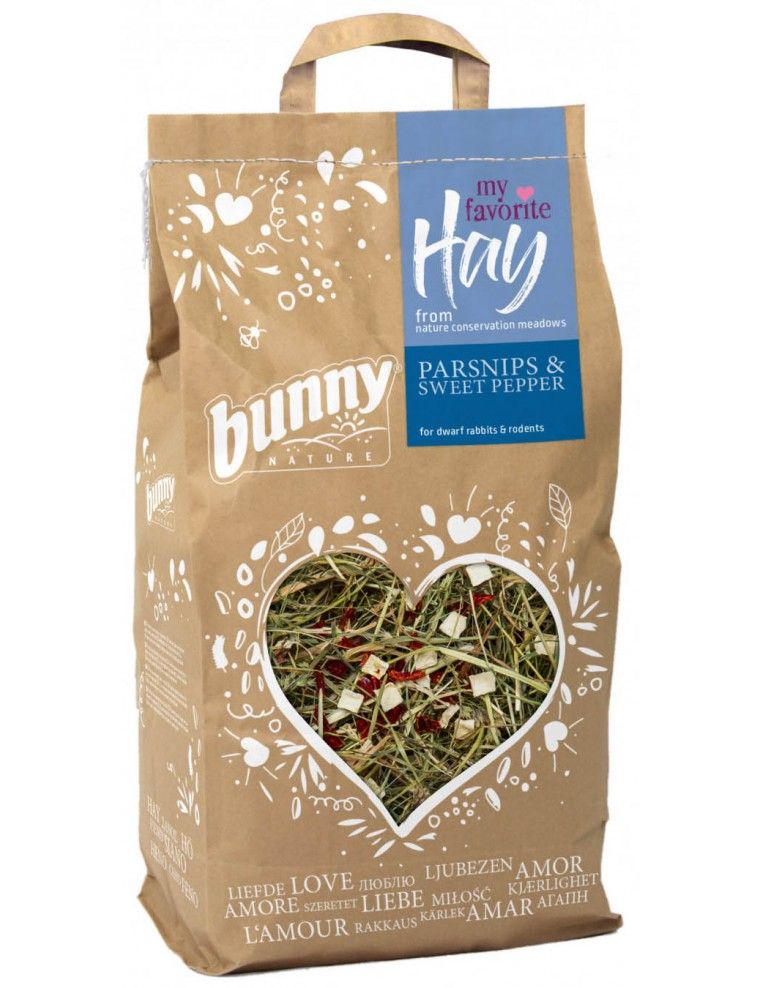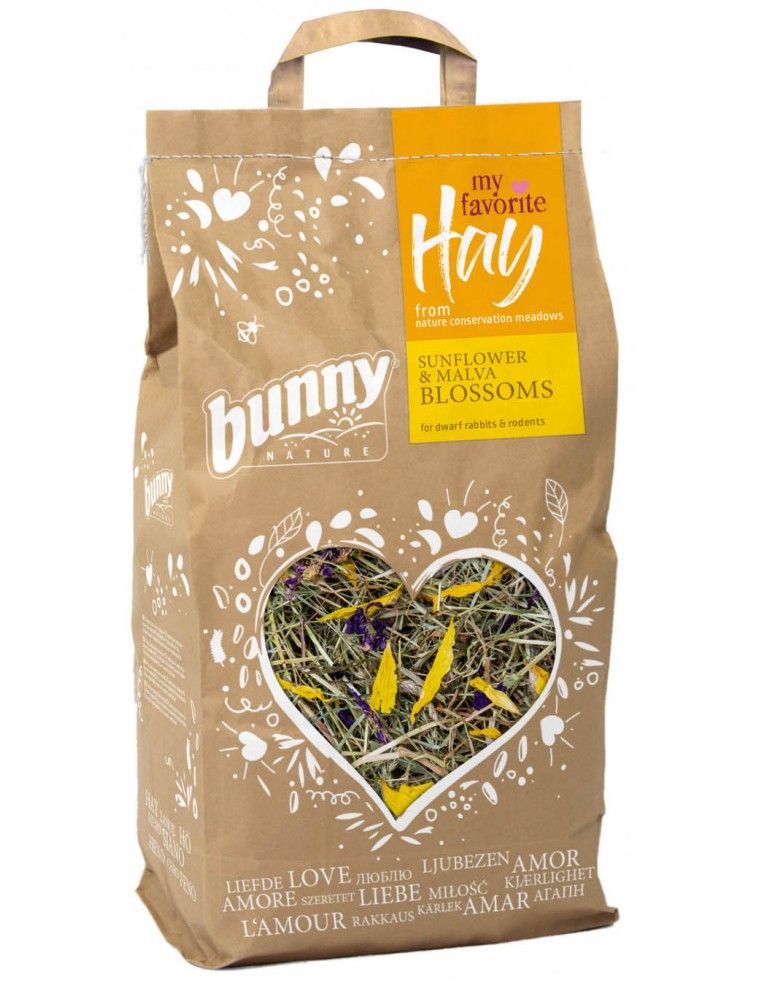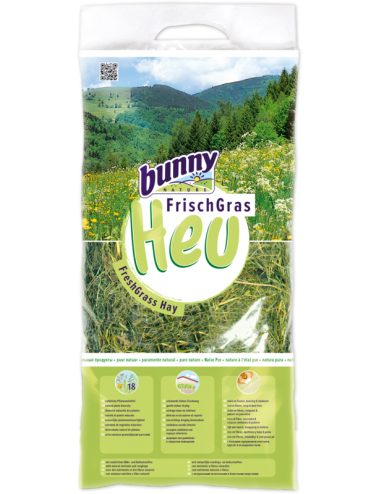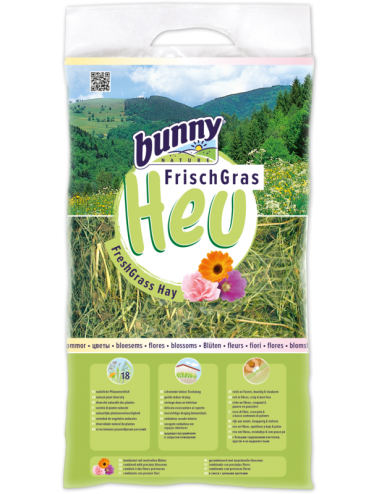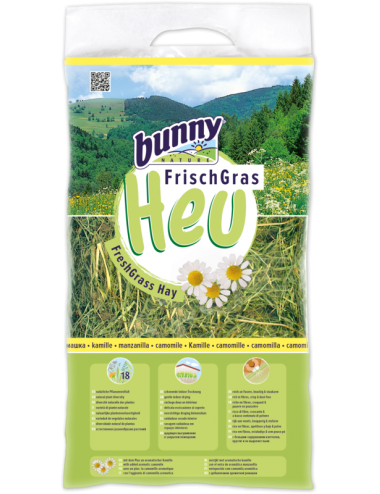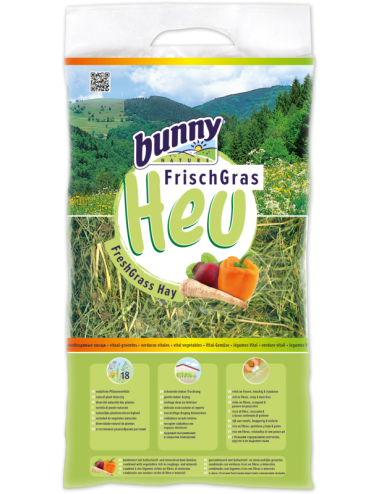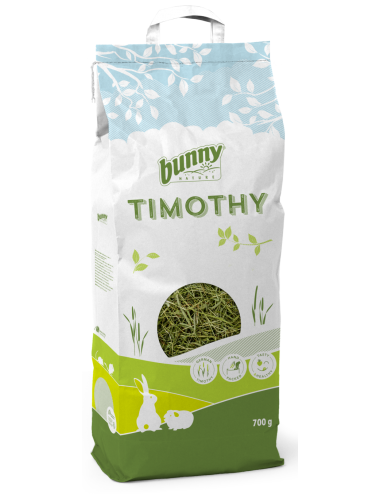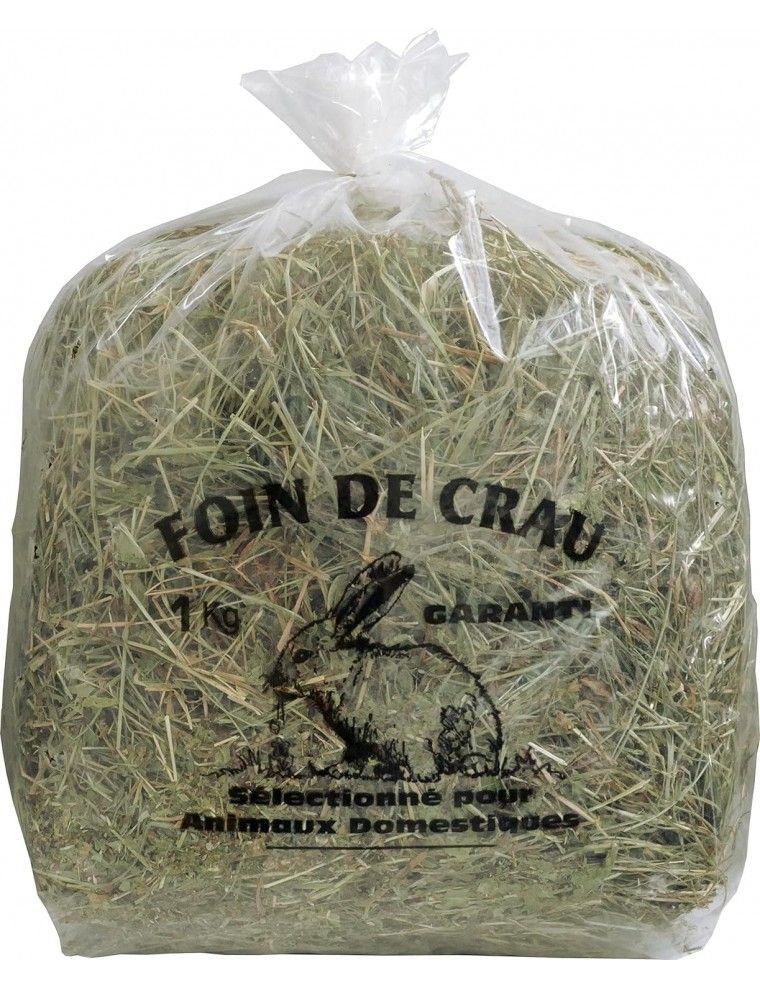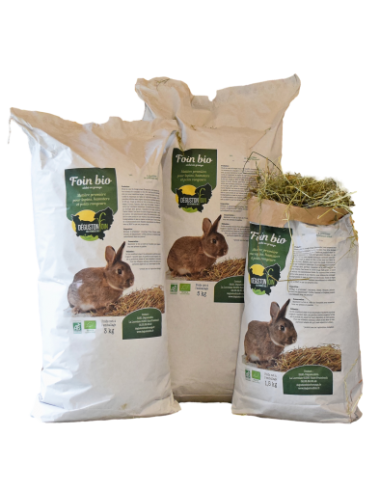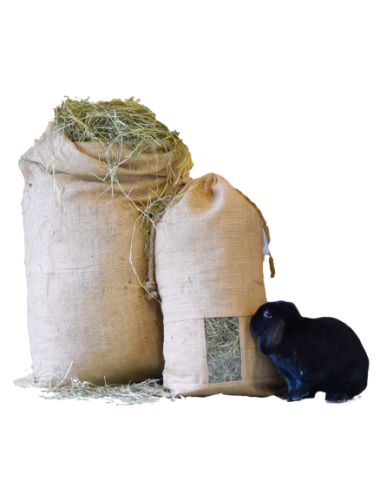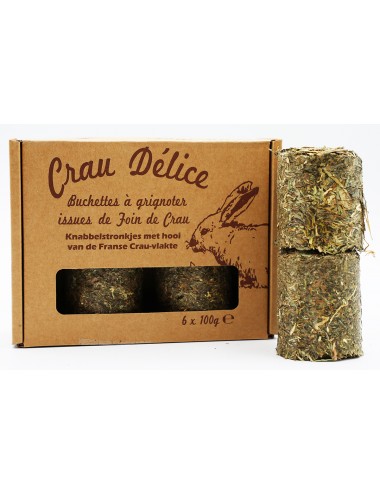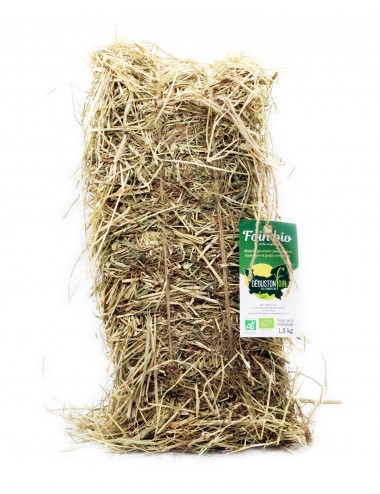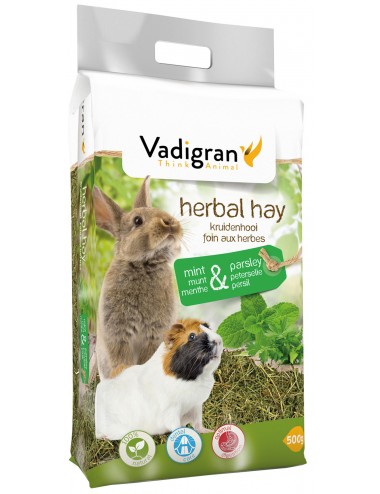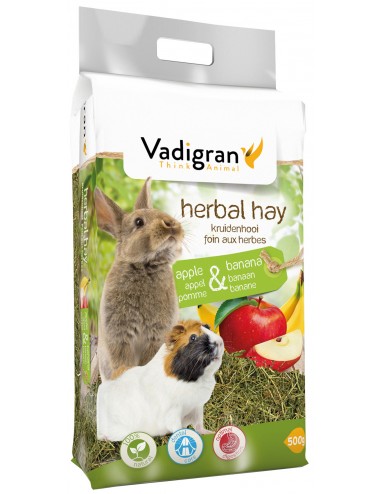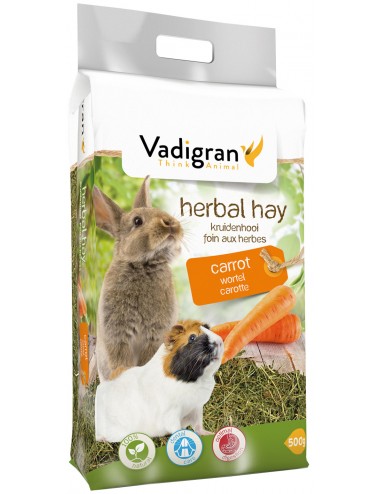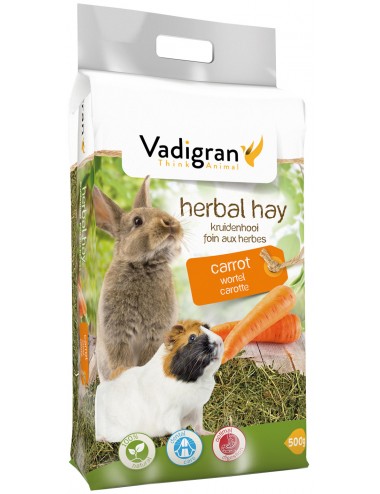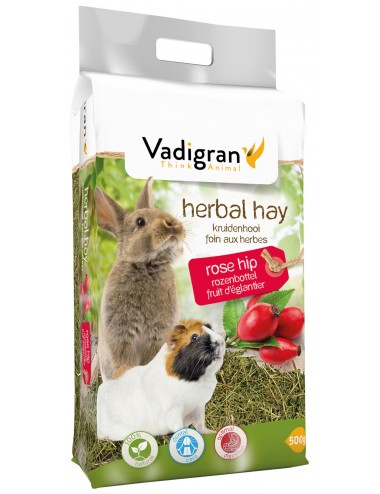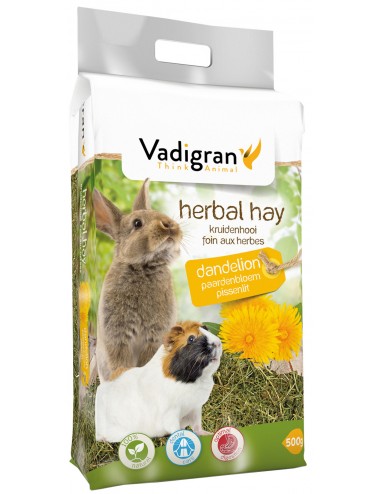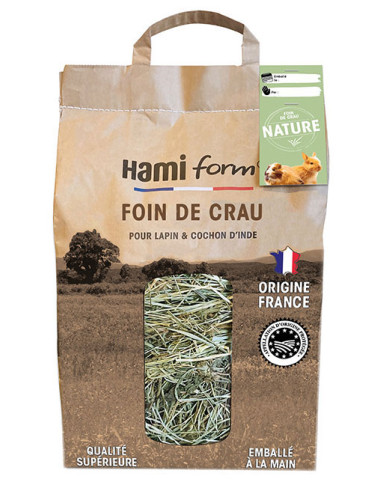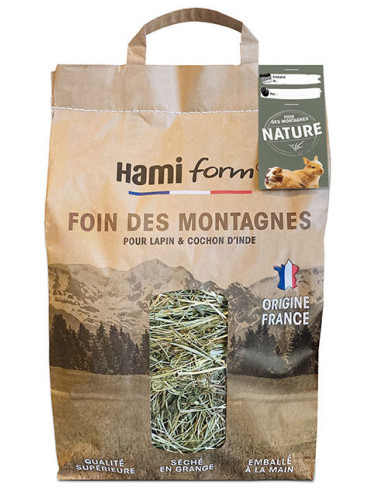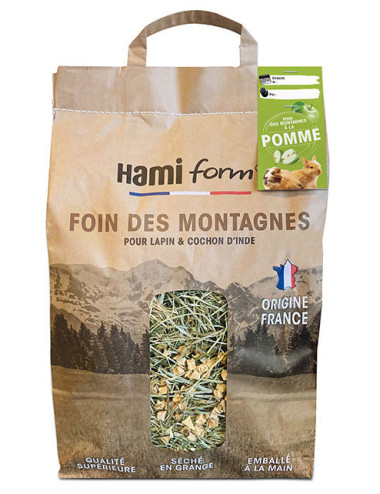- in replenishment
Hay Guinea pig/Guinea pig
Hay, Pillar of the Guinea Pig's Diet at Le Petit Rongeur
Hay is not just a part of a guinea pig's diet, it is the heart of its health. At Le Petit Rongeur, we tell you a secret: a guinea pig that chews on hay all day long is a happy and healthy guinea pig. And for good reason, it is not only their favorite meal, but also the key to healthy digestion and impeccable teeth. So, how much hay? The answer is simple: as much as you want! Vegetables and food supplements come second to vary the pleasures and nutrients.
Discovery of Hay Types: A World to Explore
Crau Hay: Natural Excellence
Imagine hay so perfect that it seems to be picked strand by strand. It is Crau hay, this treasure from the south of France, rich in minerals and flavors, which offers your companion an unrivaled taste experience. At Le Petit Rongeur, Crau hay is the VIP of our shelves.
Prairie Hay: Everyday Variety
Meadow hay is the perfect mix for those who like diversity. A bouquet of grasses, plants, and even small flowers, so that every bite is a discovery. Ideal for the curious taste buds of our rodent friends.
Organic Hay: Purity and Health
In a world where organic is taking up more and more space, our guinea pigs are not left behind. Organic hay is the promise of clean food, without any chemical treatment. An ethical and healthy choice for attentive owners.
Compressed Hay: Practical and Clean
Compressed hay is the solution for those who don't want to struggle with strands scattered everywhere. Compact, easy to store, and above all, dust-free, it is ideal for maintaining a clean cage and healthy environment for your pet.
Why is Hay Essential?
Beyond feeding, hay plays a crucial role in the daily well-being of the guinea pig. It is a real source of well-being, essential for dental and digestive health. At Le Petit Rongeur, we don't do things by halves: each brand of hay we offer, from DégustonFoin to Zolux , including Bunny Nature and Witte Molen , is selected for its superior quality and nutritional benefits.
With such a varied range, choosing the right hay can seem complex. But don’t worry, at Le Petit Rongeur, we are here to guide you. Whether you are looking for Crau hay for its premium quality, meadow hay for its diversity, organic hay for its purity, or compressed hay for its practicality, we have what you need. Each type has its advantages, and the choice depends on your expectations and the specific needs of your little companion.
Hay
Hay, Pillar of the Guinea Pig's Diet at Le Petit Rongeur
Hay is not just a part of a guinea pig's diet, it is the heart of its health. At Le Petit Rongeur, we tell you a secret: a guinea pig that chews on hay all day long is a happy and healthy guinea pig. And for good reason, it is not only their favorite meal, but also the key to healthy digestion and impeccable teeth. So, how much hay? The answer is simple: as much as you want! Vegetables and food supplements come second to vary the pleasures and nutrients.
Discovery of Hay Types: A World to Explore
Crau Hay: Natural Excellence
Imagine hay so perfect that it seems to be picked strand by strand. It is Crau hay, this treasure from the south of France, rich in minerals and flavors, which offers your companion an unrivaled taste experience. At Le Petit Rongeur, Crau hay is the VIP of our shelves.
Prairie Hay: Everyday Variety
Meadow hay is the perfect mix for those who like diversity. A bouquet of grasses, plants, and even small flowers, so that every bite is a discovery. Ideal for the curious taste buds of our rodent friends.
Organic Hay: Purity and Health
In a world where organic is taking up more and more space, our guinea pigs are not left behind. Organic hay is the promise of clean food, without any chemical treatment. An ethical and healthy choice for attentive owners.
Compressed Hay: Practical and Clean
Compressed hay is the solution for those who don't want to struggle with strands scattered everywhere. Compact, easy to store, and above all, dust-free, it is ideal for maintaining a clean cage and healthy environment for your pet.
Why is Hay Essential?
Beyond feeding, hay plays a crucial role in the daily well-being of the guinea pig. It is a real source of well-being, essential for dental and digestive health. At Le Petit Rongeur, we don't do things by halves: each brand of hay we offer, from DégustonFoin to Zolux , including Bunny Nature and Witte Molen , is selected for its superior quality and nutritional benefits.
With such a varied range, choosing the right hay can seem complex. But don’t worry, at Le Petit Rongeur, we are here to guide you. Whether you are looking for Crau hay for its premium quality, meadow hay for its diversity, organic hay for its purity, or compressed hay for its practicality, we have what you need. Each type has its advantages, and the choice depends on your expectations and the specific needs of your little companion.
- in replenishment
- in replenishment
- 9 in stock
- in replenishment
- in replenishment
- 7 in stock
- 8 in stock
- 16 in stock
- 4 in stock
- 13 in stock
- in replenishment
- 8 in stock
- 16 in stock
- in replenishment
- in replenishment
- 8 in stock
- 4 in stock
- 15 in stock
- in replenishment
- 3 in stock
- in replenishment
- in replenishment
- 8 in stock
- 19 in stock
- 9 in stock
- 2 in stock
- 4 in stock
- 6 in stock
- in replenishment
- 3 in stock
- 1 in stock
- 4 in stock
- 1 in stock
- in replenishment
- in replenishment
- in replenishment
- in replenishment
- in replenishment
- in replenishment
- in replenishment
- in replenishment
- in replenishment
- 4 in stock
- 11 in stock
- 5 in stock
- 8 in stock
- 3 in stock
- 3 in stock
- 9 in stock
- 9 in stock
- 3 in stock
- 9 in stock
- 3 in stock
- in replenishment
- 3 in stock
- in replenishment
- 6 in stock
Questions / Réponses
Le foin est essentiel dans l'alimentation des cochons d'Inde car il fournit la fibre nécessaire à la bonne digestion et au bon fonctionnement de leur appareil digestif. Il aide à prévenir la constipation, maintient les dents usées (car elles poussent continuellement) et contribue à une alimentation équilibrée. Le foin de fléole (Timothy) est particulièrement recommandé car il a un bon équilibre entre calcium et phosphore et une faible teneur en calories.
Le foin de fléole (Timothy) est souvent considéré comme le meilleur pour les cochons d'Inde en raison de sa faible teneur en calcium, ce qui est préférable pour prévenir les calculs urinaires. D'autres types de foin comme le foin d'avoine, de brome et d'orchard peuvent également être bons, mais ils devraient être donnés en complément du foin de fléole pour varier l'apport en nutriments.
Oui, il est recommandé de fournir du foin à volonté aux cochons d'Inde. Ils devraient avoir un accès constant au foin pour favoriser une digestion saine et pour l'usure naturelle de leurs dents. Le foin devrait constituer la majorité de leur alimentation quotidienne.
Le foin doit être stocké dans un endroit sec et aéré, à l'abri de la lumière directe du soleil et de l'humidité pour éviter qu'il ne moisisse. Utiliser un conteneur respirant ou un sac en toile peut aider à maintenir sa fraîcheur. Il est important de vérifier régulièrement l'état du foin et de le remplacer s'il devient humide ou moisi.
Bien que le foin soit essentiel, une mauvaise qualité de foin (poussiéreux, moisi) peut causer des problèmes respiratoires ou digestifs. Assurez-vous que le foin est propre, sec et exempt de moisissures avant de le donner. De plus, un déséquilibre nutritionnel peut survenir si le foin est la seule source d'alimentation, donc il doit être complété par des légumes frais et une petite quantité de granulés spécifiques pour cochons d'Inde.
Varier les types de foin peut enrichir l'apport nutritionnel et stimuler l'intérêt alimentaire des cochons d'Inde. Cela leur permet de bénéficier de différents profils nutritionnels et textures, ce qui est bon pour leur santé dentaire et digestive. Toutefois, le foin de fléole devrait rester la base de leur alimentation en foin.
Lors de l'introduction d'un nouveau type de foin, il est préférable de le faire graduellement pour éviter les troubles digestifs. Commencez par mélanger une petite quantité du nouveau foin avec l'ancien et augmentez progressivement la proportion sur plusieurs jours. Cela permet à la flore intestinale de s'adapter et réduit le risque de refus ou de problèmes digestifs.
